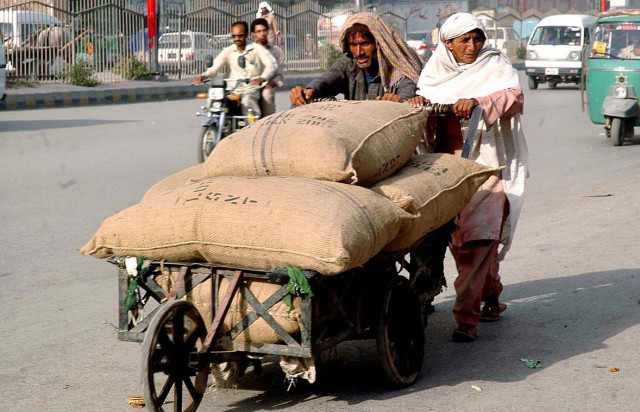Fading away: A sad state of the Pakistani jute industry
Number of mills has gone down from 18 to just five.

When 44% of the total mills in a sector are shut down within four years, the word crisis would not be an overstatement. But, the story is more than just the mills’ fight for survival.
After more than two decades of declining production, the jute industry has now reached a position where it is facing existential threat. From a strong position of 18 mills a few decades ago, the number of operational mills has now dropped to just five. Four of the 18 have shut down in the last four years alone.
Despite the bleak picture, industry officials see a ray of hope. On its own part, the local industry has started promoting local cultivation of jute in Punjab but it is still a tiny drop in the ocean for an industry that uses 99% imported raw material.

“If the government provides a long-term support policy for jute cultivation in Pakistan to substitute import of raw material, the exports of value added jute products could earn handsome amount of foreign exchange,” Pakistan Jute Mills Association Senior Vice President Saqlain Akhtar said.
He said this while briefing a few journalists at a jute mill about the industry’s process, potential and impediments. He informed the journalists that the industry was established in 1966 on the request of the government to fulfil the local needs of grain storage whose production factories and cultivation were in East Pakistan.
The jute industry mainly depends upon the government demand of storing grains for strategic purposes, but it also exports some of its produce. At present, the industry exports stand at $14 million, which according to Akhtar, can be increased manifold with proper government policies.
The alternative of jute bags is polypropylene bags that are now commonly used in long-term storage and transportation of various commodities. The situation started turning against the jute industry when a few years ago provincial food departments gradually shifted their grain reserves on plastic bags.
Although jute bags are still preferable for long-term grain storage, its higher price relative to its competitor is actually forcing it out on various fronts. According to an industry official, if a plastic bag is available at Rs60, the same 100kg capacity jute bag can cost you Rs100.
The industry officials say that they need government’s resolve to avoid using hazardous packaging materials for food storage and utilise jute so that the industry can plan investments in capacity utilisation and local cultivation of jute.
This would not only make the country self-sufficient viz-a-viz raw material but also help concentrate more on finding export avenues as the majority of foreign markets are in tight grip of two regional countries – Bangladesh and India.
Proper local production of jute will not only eliminate the risks of international trade issues but will also save foreign exchange spent on raw jute procurement from neighboring countries, Akhtar said.
The combined capacity of the current five jute mills in operation is 125,000 tons per annum while current production is 100,000 tons.
The industry has a direct employment of 25,000 while it provides indirect livelihood to 100,000 people.
Published in The Express Tribune, December 11th, 2014.
Like Business on Facebook, follow @TribuneBiz on Twitter to stay informed and join in the conversation.



















COMMENTS
Comments are moderated and generally will be posted if they are on-topic and not abusive.
For more information, please see our Comments FAQ